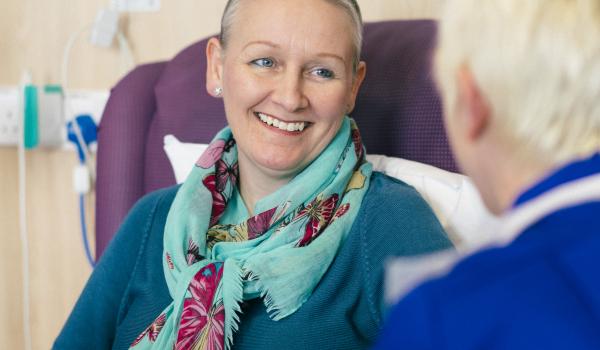A Study of Avutometinib (VS-6766) v. Avutometinib (VS-6766) + Defactinib in Recurrent Low-Grade Serous Ovarian Cancer With and Without a KRAS Mutation (RAMP 201)
Who can take part
Please note - unless we state otherwise in the summary, you need to talk to your doctor about joining a trial.
You may be able to take part in this clinical trial if you:
-
are at least 18 years of age
-
have been diagnosed with low-grade serous ovarian cancer (LGSOC)
-
have a tumour with or without a KRAS mutation (the investigator can test for this if you don't already know)
-
have disease that is progressing on treatment or a recurrence of LGSOC
-
you have had or are having at least one type of systemic therapy (chemotherapy)
-
have cancer that can be measured on a CT or MRI scan
This is not an exhaustive list. If you're interested in participating in a clinical trial, you should speak to your doctor about what other criteria might apply.
About the trial
In this study, researchers want to find out how safe and effective it is to use two new drugs, alone or in combination, to treat recurrent, low grade serous ovarian cancer (LGSOC).
The drugs used in this trial are both a type of drug called a kinase inhibitor. Kinase inhibitors block cancer cell growth.
The drugs involved in this trial are:
- Defactinib – an oral drug (taken by mouth) that blocks the FAK and PYK2 signalling pathways
- Avutometinib – an oral drug that blocks the RAF/MEK signalling pathways
There are 4 stages of development to this trial and the trial is currently at stage 4. During this stage the researchers will consider how well a lower dose of avutometinib with defactinib works.
If you take part in this study, you'll need to:
- attend study visits every two weeks
- take the study drug(s) at home in tablet form and keep a diary of what you have taken
- have additional tests to ensure your safety during the trial
- donate samples of blood and tumour for research purposes
This information was last reviewed on 12/01/2024. Please note that the status of clinical trials can change at short notice. You should always check with your clinical team which trials may be suitable for your situation.



